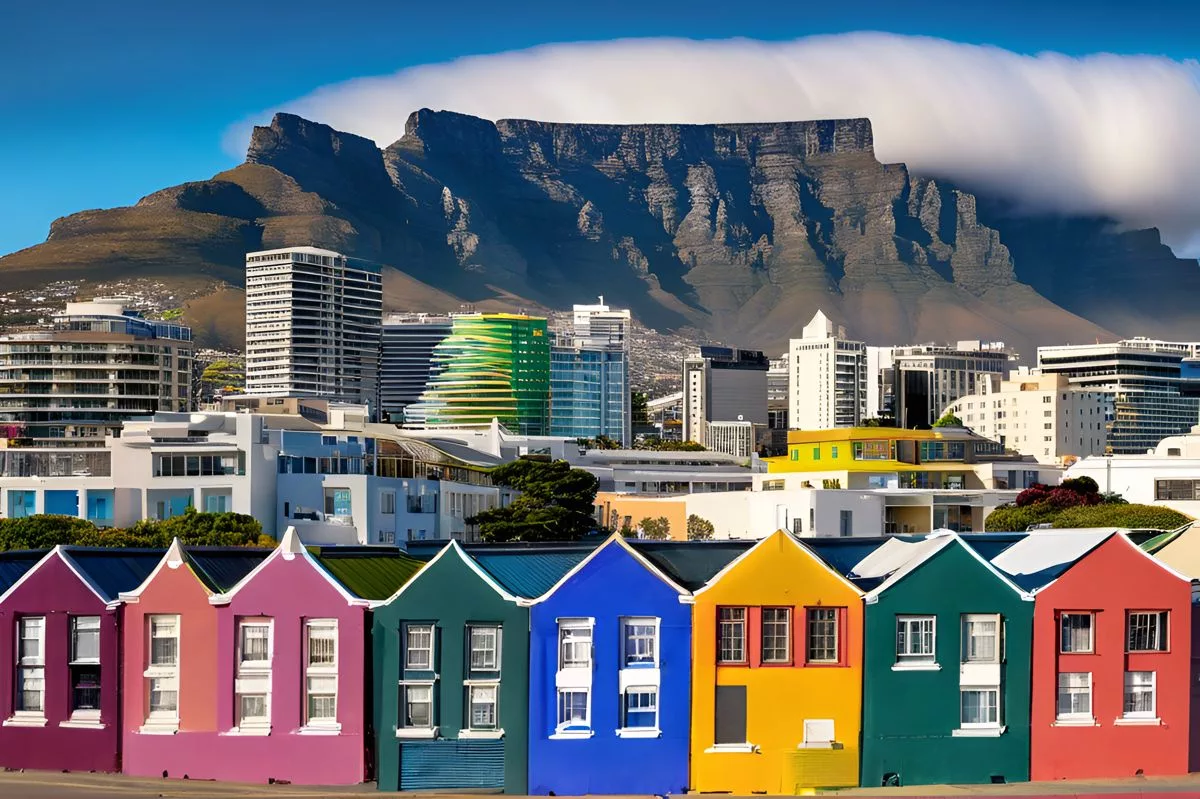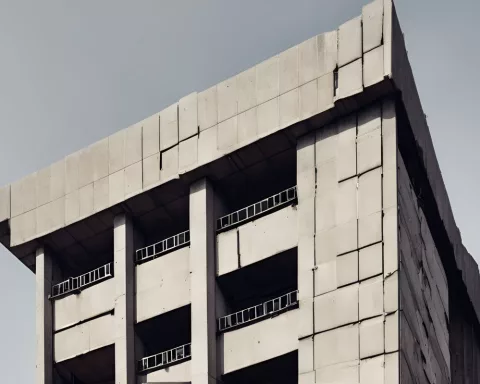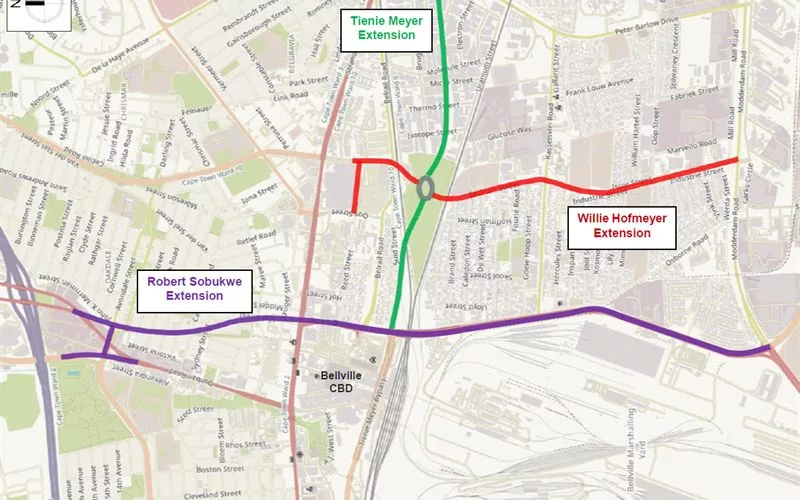Cape Town’s Building for Jobs Budget is a groundbreaking initiative that focuses on pro-poor infrastructure investment, committing R39.5bn to underserved sectors over the next three years. The budget prioritizes community-centric development, with 75% of the proposed R12bn investment benefiting lower-income households. The initiative aims to generate 130,000 construction-related jobs and reshape Cape Town’s narrative, striving to dismantle the unjust past and plot a path towards a more balanced future. Through this budget, Cape Town aspires to become a City of Hope, adhering to its long-term vision.
What is Cape Town’s Building for Jobs Budget?
Cape Town’s Building for Jobs Budget is a pioneering initiative in pro-poor infrastructure investment. It constitutes a planned infrastructure investment of R39.5bn over the forthcoming three years, with the commitment to the underserved sectors of society embodied in projects such as South Africa’s most extensive bulk sewer upgrade on the Cape Flats, major expansions in wastewater treatment, and unprecedented sewer pipe replacements. The budget also emphasizes enhancing social amenities such as parks, sports facilities, libraries, and services for homeless individuals.
Political Evolution and Infrastructure Development
The intriguing story of urban design and growth in Cape Town, arguably the most fascinating in South Africa and perhaps the whole continent, centers on a unique blend of politics, economics, and a dedication to elevating the underprivileged. This narrative is powerfully illustrated by the historic Building for Jobs Budget 2024/25, a pioneering initiative in pro-poor infrastructure investment.
Cape Town’s history, constantly unfolding, is marked by democratic victories such as its 13th successful election. The city’s political environment has evolved beyond one-party rule, demonstrating a maturation of democracy reflected in a rise in coalition governance. This change signifies the end of one phase and the birth of a more balanced political system. The Democratic Alliance, once again chosen to lead Cape Town, takes great pride in cultivating a cooperative atmosphere, engaging with various political factions for the nation’s overall welfare.
The foundation of this political metamorphosis is anchored in the city’s dedication to economic expansion. The primary objective remains the elevation of people from poverty into employment. This purpose finds tangible manifestation in the planned infrastructure investment of R39.5bn over the forthcoming three years. This significant sum, a portion of a R120bn 10-year plan for anticipated projects, eclipses the combined total allocation of all three Gauteng metros. The projects funded by this budget are set to not only reshape Cape Town but also launch it into the future.
Community-Centric Infrastructure Development
At the heart of the Building for Jobs Budget lies the comprehension that any significant transformation must focus on the community’s aspirations and requirements. The city’s administration has been responsive to the feedback from Capetonians, integrating their recommendations into the budget decisions. The outcome is an infrastructure budget that directly addresses the communities’ needs.
In the 2024/25 fiscal year, 75% of the proposed R12bn investment will directly benefit lower-income households. This commitment to the underserved sectors of society is embodied in projects such as South Africa’s most extensive bulk sewer upgrade on the Cape Flats, major expansions in wastewater treatment, and unprecedented sewer pipe replacements.
The Building for Jobs Budget also prioritizes water security and attempts to reduce reliance on Eskom by upgrading the city’s electrical grid and buying power on the open market. Additionally, a joint policing center will be established with a budget of R160m to strengthen law and order and decrease crime rates.
Public transportation has also been given substantial attention. The MyCiTi bus service is scheduled for expansion to different communities across the city. There are also plans to enhance the rail service to ensure it is safe, cost-effective, reliable, and locally managed.
However, infrastructure improvements constitute only a part of the picture. The budget also emphasizes enhancing social amenities such as parks, sports facilities, libraries, and services for homeless individuals. The objective is to create functional communities, with improvements ranging from better roads and streetlights to refuse collection and upgrades to informal settlements.
Economic Impact and Future Challenges
This unparalleled scale of infrastructure investment is set to significantly impact the economy, potentially generating an estimated 130,000 construction-related jobs over three years. Cape Town, already possessing the lowest unemployment rate in the country, is thus ready to solidify its status as the city with the highest likelihood of employment.
The Building for Jobs Budget is more than just an economic and infrastructural overhaul. It fundamentally aims to redefine the city’s narrative, and in some ways, the country’s. It strives to dismantle the unjust past and plot a path towards a more balanced future.
This commitment to change doesn’t overlook the future challenges. The city acknowledges the issues posed by factors threatening frontline services, metal thieves exploiting crucial infrastructure, and the substandard service delivery of Eskom. To counter these obstacles, the city has implemented a 24-hour toll-free hotline for reporting extortion or metal theft and a petition to support the City’s takeover of Eskom supply areas for improved service delivery.
Cape Town: A Beacon of Hope
Through this budget, Cape Town aspires to repay the trust its residents have placed in it. It serves as a blueprint that yearns to mold South Africa into the nation envisioned by its citizens—a nation reflecting its constitution’s ideals, a nation that its talented and potential-filled populace deserves. In this manner, Cape Town aims to evolve into a City of Hope, adhering to its long-term vision.
In conclusion, the Building for Jobs Budget 2024/25 isn’t merely a financial strategy. It represents a declaration of purpose, a testament to Cape Town’s dedication to its citizens, and a beacon of hope for a future brimming with opportunities for all.
1. What is Cape Town’s Building for Jobs Budget?
Cape Town’s Building for Jobs Budget is a pioneering initiative in pro-poor infrastructure investment. It constitutes a planned infrastructure investment of R39.5bn over the forthcoming three years, with the commitment to the underserved sectors of society embodied in projects such as South Africa’s most extensive bulk sewer upgrade on the Cape Flats, major expansions in wastewater treatment, and unprecedented sewer pipe replacements.
2. How does the Building for Jobs Budget focus on community-centric development?
At the heart of the Building for Jobs Budget lies the comprehension that any significant transformation must focus on the community’s aspirations and requirements. The city’s administration has been responsive to the feedback from Capetonians, integrating their recommendations into the budget decisions. The outcome is an infrastructure budget that directly addresses the communities’ needs.
3. What is the economic impact of the Building for Jobs Budget?
This unparalleled scale of infrastructure investment is set to significantly impact the economy, potentially generating an estimated 130,000 construction-related jobs over three years.
4. What challenges does Cape Town face in implementing the Building for Jobs Budget?
The city acknowledges the issues posed by factors threatening frontline services, metal thieves exploiting crucial infrastructure, and the substandard service delivery of Eskom. To counter these obstacles, the city has implemented a 24-hour toll-free hotline for reporting extortion or metal theft and a petition to support the City’s takeover of Eskom supply areas for improved service delivery.
5. How is Cape Town aiming to become a “City of Hope”?
Through this budget, Cape Town aspires to repay the trust its residents have placed in it. It serves as a blueprint that yearns to mold South Africa into the nation envisioned by its citizens—a nation reflecting its constitution’s ideals, a nation that its talented and potential-filled populace deserves. In this manner, Cape Town aims to evolve into a City of Hope, adhering to its long-term vision.
6. How is the Building for Jobs Budget addressing social amenities?
The budget also emphasizes enhancing social amenities such as parks, sports facilities, libraries, and services for homeless individuals. The objective is to create functional communities, with improvements ranging from better roads and streetlights to refuse collection and upgrades to informal settlements.












